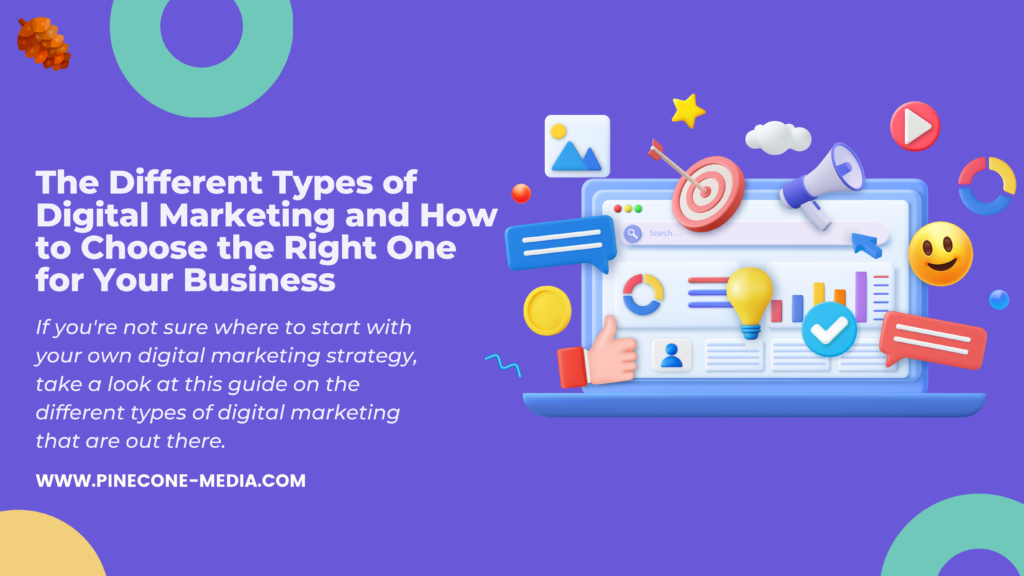Digital marketing is no longer just a strategy for reaching new customers. Today, it’s an essential tool for staying in touch with your existing ones. As consumers become more mobile-centric and brands look to build long-term relationships with their customers, digital marketing has become crucial for businesses of all sizes. If you’re not sure where to start with your own digital marketing strategy, take a look at this guide on the different types of digital marketing that are out there.
Social Media Marketing
Social media marketing is a great way to reach your target audience. It can help you generate leads, build brand awareness, and build relationships with customers. Social media marketing also has the potential to increase sales by allowing you to run ads on platforms like Facebook or Instagram. If you’re looking for an affordable way to get started with digital marketing, social media might be right for you!
Search Engine Optimization (SEO)
Search engine optimization (SEO) is a process of optimizing your website to rank higher in search engines. The goal of SEO is to attract more people to your website by increasing its visibility in organic search results. SEO is a long-term strategy and it takes time to see results, but it’s worth the effort because it’s one of the most effective ways you can grow your business online.
Paid Advertising
Paid advertising is a good way to reach your target audience. You can use paid advertising on social media, YouTube, search engines and other online platforms. Paid ads are most effective when you know your target audience and what they are interested in.
Website Analytics
Website analytics are the most important tool in digital marketing. They allow you to see how many people visit your website, what they’re looking at and how long they stay there. You can also track conversions (for example: if someone fills out a contact form or buys something).
In addition to basic metrics like page views and bounce rates, there are some important things you should be looking for:
- How much time do users spend on each page of my site? This will tell me whether my content is engaging enough for them – or if it needs improvement.
- What are the top keywords people search when they come to my website? This gives me an idea of what topics I should write more about so that I’m reaching potential customers with relevant information when they arrive at my site through Google searches.
When planning your digital marketing strategy, consider what type of content you want to create, and the target audience for which you want to create it. This will help you determine which channels are best for reaching them.
You also want to consider what type of content you want to create, and the target audience for which you want to create it. This will help you determine which channels are best for reaching them.
Social media marketing: If your customers are on social media, then this is where they are likely to be found. Social media marketing can include creating and sharing content on Facebook, Twitter and Instagram (among other platforms). Paid advertising: Your business may benefit from paid ads on Google AdWords or Facebook Ads that target potential customers based on their interests and location. Search engine optimization (SEO): If people search for keywords related directly or indirectly with your business online–and if those searches result in clicks through into a website owned by yours–then there’s probably some room for improvement in terms of optimizing those pages using SEO techniques like keyword research so as not only rank well but also convert visitors into leads/customers/subscribers etcetera! Analytics: Analytics help us understand where we’re getting our traffic from so we know where else we need more visibility in order not only drive more traffic but also increase conversions.”
What types of digital marketing will work best for your business? It depends on several factors, including your target audience. One of the most important things to consider is where your audience is looking for information and what they know about the industry. If you want to capture the attention of an in-depth niche audience who knows a lot about the industry, informational content can create value and draw them in. If you’re trying to reach a young audience, one of the most useful tools available to you is social media. Find out which platforms are most popular among your target audience and start marketing there!





